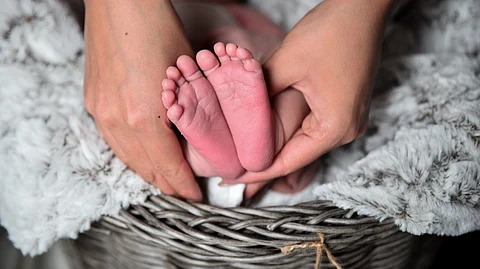New motherhood: Staying emotionally well after birth
If pregnancy is all about the mother-to-be, then the phase immediately after shifts the focus onto the baby. It can be hard for a first-time mother to cope with the responsibility of caring for the baby while she herself is recovering from the birth. New mothers may feel overwhelmed with their new responsibilities. Here’s how you can take care of yourself:
-
It is normal to feel tired and weak for a few days or weeks after the birth. There may have been significant blood loss, and you may feel tired or shiver. There is a sudden loss in weight, and a feeling of the stomach being ‘empty’. Rest well in the first 2-3 weeks.
-
Drink a lot of water and fluids. Hydration is very important during this phase.
-
Have a normal diet with nourishing food. New mothers need food that is rich in nutrients. Check with your doctor about your diet and include their suggestions, rather than going by what others say. There are many rituals around diet. Try to follow what is scientific and medically sound.
-
Breastfeeding: The first few days may be tough for most new mothers. Take the help of the doctors or nurses at the hospital. Don’t hesitate to ask for advice regarding breastfeeding and don’t put undue pressure on yourself. The right position, a relaxed posture and mood, and the right approach to breastfeeding is all it takes. If still in doubt, talk to a lactation consultant.
-
It is natural to feel overwhelmed, and you may question your decision to have a baby – particularly in the first few days. Having a support system in place helps you care for the baby while still being able to get enough rest.
-
In the first couple of months, it is entirely normal to feel tired, and think that you are unable to make decisions. This is very common. Seek help if you think this is hampering your caring for the child.
-
Exercise: You can begin with gentle exercises a few weeks after the birth. Check with your doctor about what is best advised for your physical condition.
-
The newborn may take a lot of your time and attention, and many new mothers are unable to spend time with their husbands. Involve your husband in baby care; this way you get to share responsibilities and spend time together.
-
If caring for the baby is too stressful, try to find some time for yourself when the baby is being looked after by someone else.
-
Spend time with the baby when the baby is happy and calm.
For working moms-to-be
-
Always plan your post-baby work pattern before your baby is born.
-
Have a frank discussion with your manager or HR about your needs. You may feel giddy or low on energy sometimes. Take HR’s consent to take breaks when your body asks for it. Look for work-from-home options. Find out about work policies and facilities related to women employees with babies.
-
Break times: Can you take short naps or breaks for 10-15 minutes?
-
Organize infant feeding by learning how to express and store breast milk when you are away at work.
-
Stress has an impact on both the child and the mother. If work is causing the stress, speak to your manager and see if it is possible to revise your responsibilities. Check if you can work from home to avoid travel fatigue. Make use of the maternity leave policies in your organization.
We are a not-for-profit organization that relies on donations to deliver knowledge solutions in mental health. We urge you to donate to White Swan Foundation. Your donation, however small, will enable us to further enhance the richness of our portal and serve many more people. Please click here to support us.


